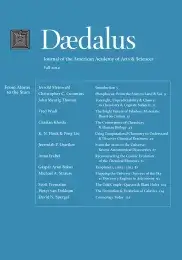On Reading & Rereading Freud’s Introductory Lectures on Psychoanalysis
I am going at least at first to write autobiographically. My justification for doing so is that I regard my experience as relatively typical and hence as bearing some fraction of non-negligible, if perhaps oblique, interest. I first read Freud sixty-five years ago. I was eighteen years old, and the occasion arose in what was then offered in my intellectually conservative college as a new course. The subject was in the humanities, and it consisted of works selected from some of the many masters of midnineteenth- and early-twentieth-century literature and thought. Included among them were such figures as Melville, Flaubert, Dostoevsky, Nietzsche, Henry and William James, George Bernard Shaw, D. H. Lawrence, Joyce, Proust, and Kafka. Inserted somewhere in the second half of the chronological list was Freud’s Introductory Lectures on Psychoanalysis, which he originally delivered between 1915 and 1917.1 Hence the context in which Freud was presented, and presented himself, to my largely bewildered late-adolescent sensibility was that of Western cultural, intellectual, and literary modernism. It was an advantage, I believe, to have read him for the first time among other immensely distinguished minds, writers who were in the course of radically departing from what had been generally accepted as canonical forms, conceptions, and conventions of representation–and of norms and values, including the values of civilization and of life itself.
Part of this advantage of reading and experiencing Freud as one cultural preeminence among others was . . .
